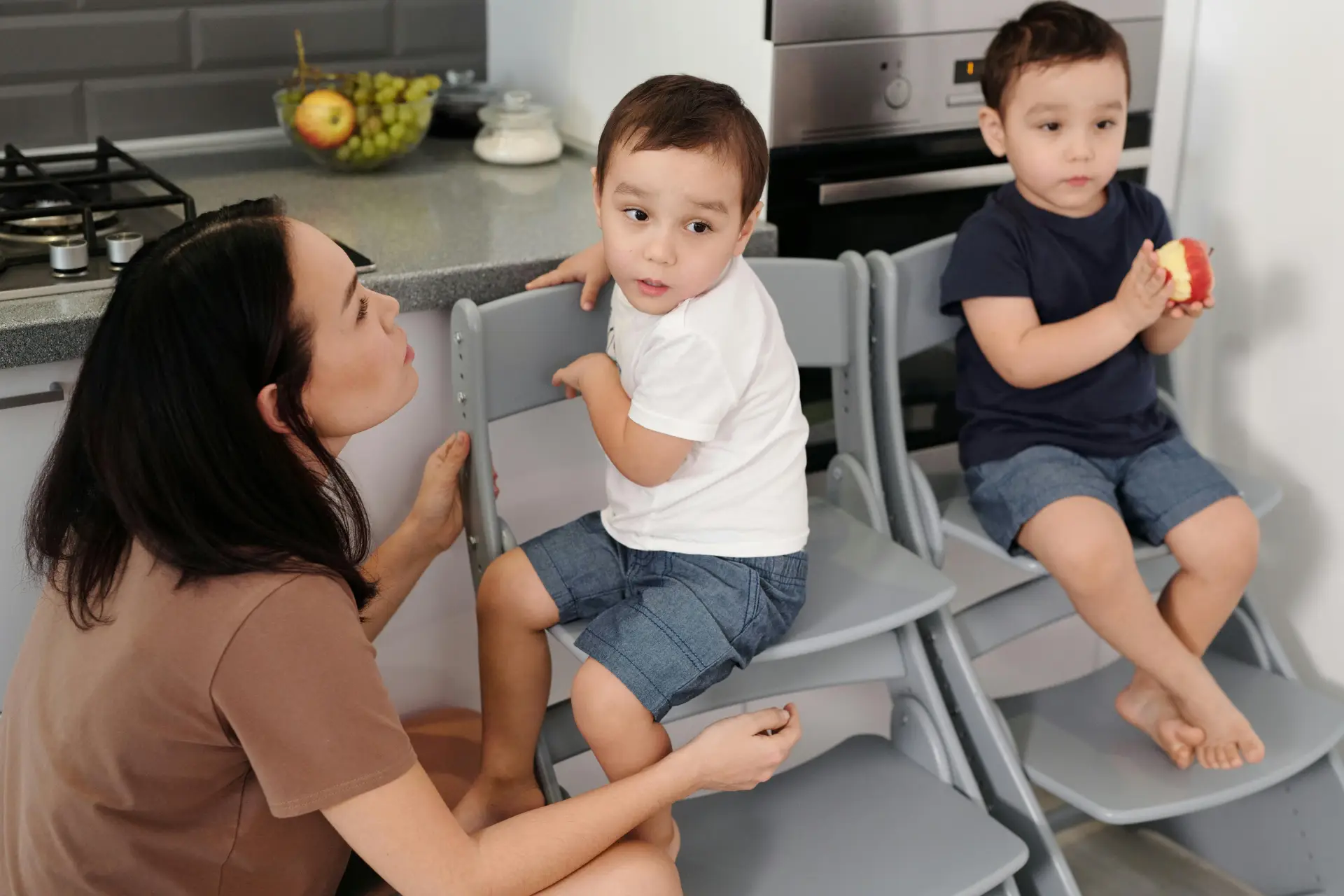Prioritising parenting arrangements afer separation
Making parenting arrangements for children after a marriage or de facto relationship breaks down should be the main priority of separating parents. There are various ways to approach the matter, which we’ll look at below. The end goal is the same with all pathways – to decide or agree upon how children will be cared for and how their needs will be met, and outline this in a way that both parents will follow.
Why are parenting arrangements so important?
In Australian family law, the best interests of the child are a guiding principle for how separated parents make decisions about care and responsibility under the Family Law Act. The law recognises that children benefit from having a meaningful relationship with both parents, as long as it is safe and appropriate to do so.
In most cases, parents won’t need to attend court and are able to reach decisions with their former partner that work for both parties while prioritising their children. Mediation or family dispute resolution can be utilised if there are any areas that parents can’t agree on, and a family lawyer can assist separated families in reaching an agreement out of court.
How parents decide on parenting arrangements for children
Parents can reach an agreement about how to provide care for children involved in a relationship breakdown in several ways. The aim is to create a shared understanding of parenting responsibilities and minimise conflict, giving children stability and support.
Some families are able to reach an understanding and establish informal or flexible arrangements regarding their parenting matters. Others may need help from a mediator, counsellor, or family dispute resolution service to assist parents to reach a verbal agreement. If these options do not result in agreement, a lawyer can assist with negotiations or court applications. Court is generally a last resort unless there are urgent matters, abuse, or child safety matters at hand.

What do parenting arrangements need to cover?
Parenting arrangements should clearly set out how children will spend time with each parent (parental responsibility), where they will live, and how decisions about their upbringing will be made. This includes areas such as:
- Schooling
- Medical care
- Extracurricular activities
- Religious or cultural practices and travel
If any specific developmental, educational, or medical needs exist for a child, it’s important to outline these in any arrangements made.
Agreements should also cover how communication between parents will take place, and how the children will communicate with the parent they are not with at a given time. It can be helpful to include arrangements for holidays, birthdays and special occasions, to ensure the psychological, emotional and cultural needs of children are met. There should also be a process for reviewing and changing the arrangement if circumstances change.
Options for organising parenting matters
How parents agree to and implement their parenting arrangements is generally based on the strength of their relationship. Less formal arrangements for children are suitable for amicable parents with a healthy co-parenting dynamic. The type of arrangement chosen will depend on the parents’ ability to communicate and cooperate.
Having a legally enforceable agreement is wise in scenarios of high conflict or when one or both parents have difficulties making arrangements with the other.
Flexible parenting arrangements (verbal agreement)
Flexible parenting arrangements are usually verbal agreements between parents who have a high level of trust and good communication and can reach and abide by their own agreement. These arrangements allow for changes based on work schedules, children’s activities or other commitments and are often more suitable for families with a cooperative co-parenting dynamic.
Informal parenting arrangements (parenting plan)
Informal parenting arrangements are written but not legally binding. They can be created by the parents themselves or with the assistance of a mediator or lawyer. While informal, these agreements can still help avoid misunderstandings and provide clarity. They may include a parenting plan, which outlines the agreed care arrangements but is not enforceable by the courts.
Formal parenting arrangements (consent orders)
Parents who agree on arrangements for their children can apply to the court for consent orders without needing to attend a hearing. Consent orders are written agreements that have been approved by the court and made legally binding. They can cover parenting arrangements as well as financial and property matters.
These orders have the same legal weight as a decision made by a judge after a contested hearing. If one parent does not comply, the other can apply to the court to enforce the order. Consent orders are most suitable for parents who want a formal, enforceable agreement while avoiding the need for a court dispute.
Court-ordered parenting arrangements (parenting orders)
Parenting orders are made by the court when parents are unable to reach an agreement, even after trying mediation or dispute resolution. These orders are legally binding and set out specific arrangements for parental responsibility, living and contact time, and decision-making for the child.
A judge will make a decision based on the child’s best interests, considering factors such as safety, the child’s relationship with each parent and any history of family violence. Parenting orders may be necessary where there is high conflict, safety concerns or a lack of communication between parents. Once made, both parents must comply with the terms or face legal consequences. An Independent Children’s Lawyer can also be appointed in more complex matters.
Interim and final parenting orders
When a parenting matter goes to court, the court may issue interim orders to set out temporary arrangements for the care of the children until a final decision is made. These interim orders are made based on the information available at the time and are designed to maintain stability for the children while the case progresses. They can cover living arrangements, time spent with each parent and decision-making responsibilities.
Final parenting orders are made at the end of the court process, either by agreement between the parties (as consent orders) or after a hearing before a judge. Final orders replace any interim orders and set out the long-term arrangements for the children. They remain in place until the child turns 18, unless varied or set aside by the court at a later date due to a significant change in circumstances.
Tip: Situations can change over time, and a parenting agreement may need to be changed. It’s important to review and update arrangements regularly to reflect the children’s needs and each parent’s capacity.

How are parenting arrangements organised?
Parenting arrangements can be organised in different ways depending on the level of formality required.
A parenting plan is a written agreement between parents outlining parenting arrangements. Parents can organise this themselves without assistance from legal practitioners. It is signed and dated by both parents, but it is not legally enforceable. It’s wise to seek legal advice if there are any concerns regarding an informal agreement not being adhered to. However, the court can consider it if later proceedings occur.
A more formal option is a consent order, which is made by the court based on an agreement between the parents. Consent orders are legally binding and can be enforced by the court if one parent does not follow the terms. If agreement cannot be reached, either parent can apply to the Federal Circuit and Family Court of Australia for a parenting order or seek support through parenting coordination services. A judge will decide what arrangement is in the best interests of the child.
How do different types of agreements unfold if parents don’t agree?
It’s worth considering how existing arrangements would work if either parent chose not to adhere to them. Below are a few particular circumstances that may occur after parental separation. If you have any concerns about situations such as these, it’s worth chatting to a family lawyer about the best options to protect your parental rights.
Example 1: One parent moves to a different city or interstate
- Consent order: If the move impacts the time the child spends with the other parent, it may breach the order. The relocating parent would need to apply to vary the order or for a relocation order, or risk court penalties for non-compliance.
- Parenting plan: The parent can technically move without breaching a binding document, but it can cause significant disruption to the agreed-upon arrangements. The other parent may seek legal advice and apply for orders if they believe the move is not in the child’s best interests.
Example 2: One parent enrols the child in a new school without consulting the other
- Consent order: If the order requires joint decision-making on education, enrolling the child without agreement may breach the order. The other parent could take legal action to challenge the decision.
- Parenting plan: There’s no legal penalty for acting without agreement, but it could damage trust and lead to further conflict. The other parent may apply for formal orders to secure a say in future decisions.

What to do if parenting disputes arise
If disputes arise, parents should try to resolve issues through calm discussion or mediation. Family dispute resolution services can help facilitate agreement. If this isn’t successful, legal advice should be sought. A family lawyer can assist in negotiating new arrangements or applying to court if necessary.
What happens if things change?
Parenting arrangements may need to change over time as children grow, due to a child’s needs, parental work commitments or relocation. Parents can update a parenting plan by agreement. If there’s a consent order, an application to vary it may be needed. Legal advice is recommended before making any significant changes.
How a family lawyer can help
A family lawyer can guide parents through the process of making parenting arrangements, including negotiating terms, drafting parenting plans or consent orders into the court-required format, and providing advice on children’s rights and parental responsibilities. They can also represent parents in mediation or court if necessary and help ensure the agreement is fair, practical and focused on the child’s best interests.
Having legal support can reduce stress and uncertainty during a difficult time and help parents feel confident that the arrangements made are clear and workable. Please get in touch with our team at Stewart Family Law for a free 15-minute chat if you’d like to discuss the best options for making parenting arrangements after separation.





